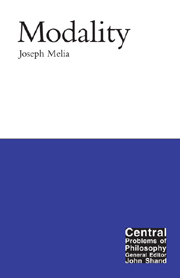6 - Quiet moderate realism
Summary
Moderate realism
One can be a realist about possible worlds, believe there are such things that exist independently of our thought and talk, without having to accept Lewis's extreme views about their nature. Possible worlds might be abstract or mathematical entities; they might be sets of propositions or maximal uninstantiated properties; they might be like books or pictures. If we could have a metaphysics that included possible worlds but excluded talking donkeys, stalking monsters and the like, we might be able to help ourselves to many or most of the advantages of possible worlds without having to pay an unacceptable ontological price. We call such a realism about possible worlds moderate realism.
At first sight, it may seem that moderate realism is a non-starter. How could one accept the existence of possible worlds at which there are talking donkeys while at the same time rejecting the talking donkeys themselves? This question can be answered by distinguishing between two notions: what is true of a possible world and what is true according to a possible world. Consider, for example, a particular token of Dickens's Great Expectations. It is true of this book that it contains 724 pages, that it is made of paper and that it weighs under a kilogram. However, it is true according to the book that there exists a character called Pip, that Pip got up to some great larks and that Pip's love is unrequited. It goes without saying that the book doesn't need to contain such a character for these things to be true according to the book.
- Type
- Chapter
- Information
- Modality , pp. 123 - 154Publisher: Acumen PublishingPrint publication year: 2003

